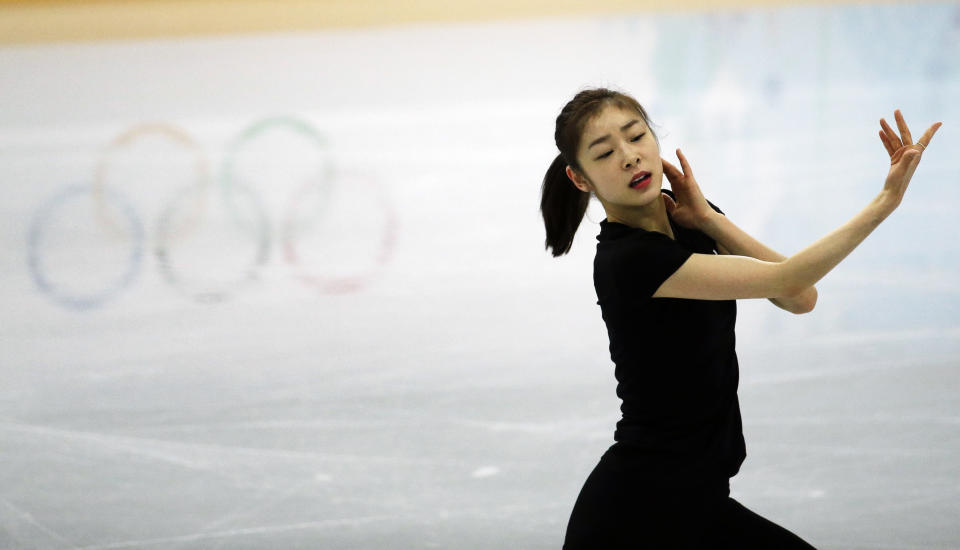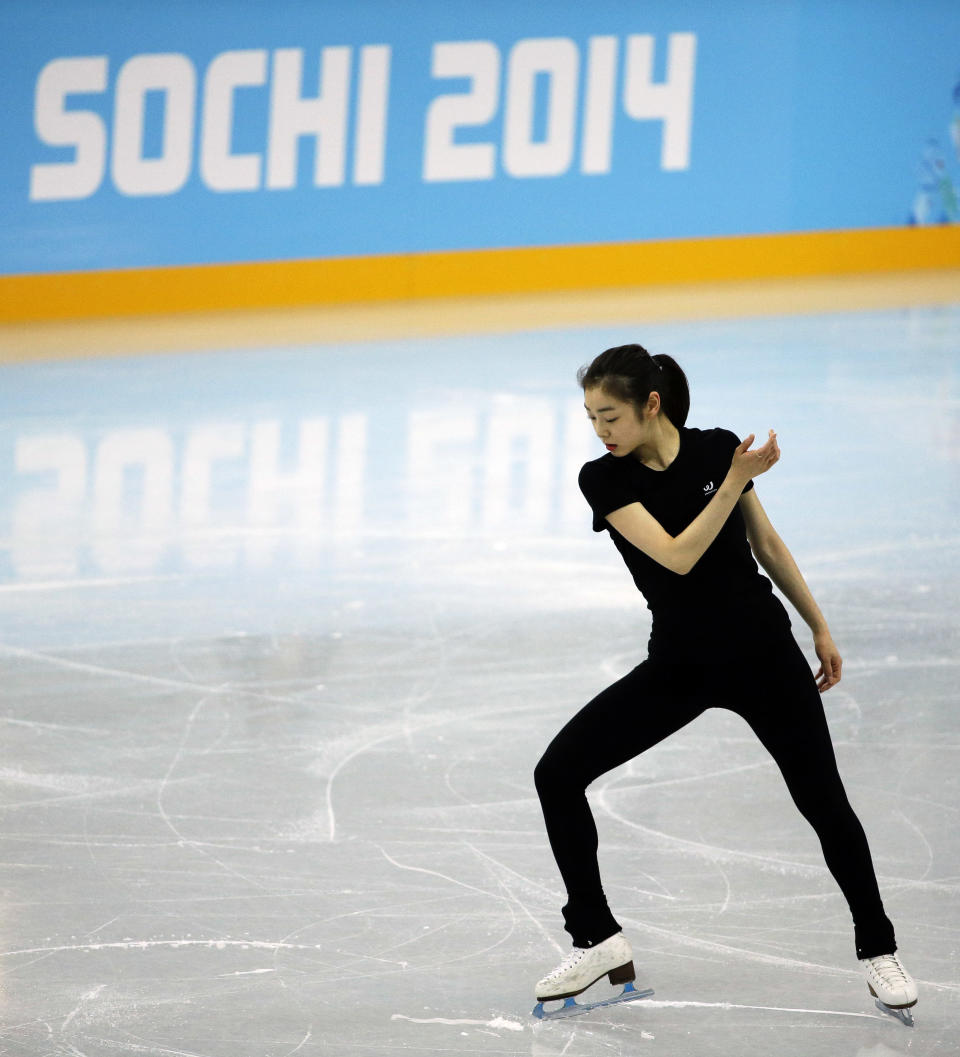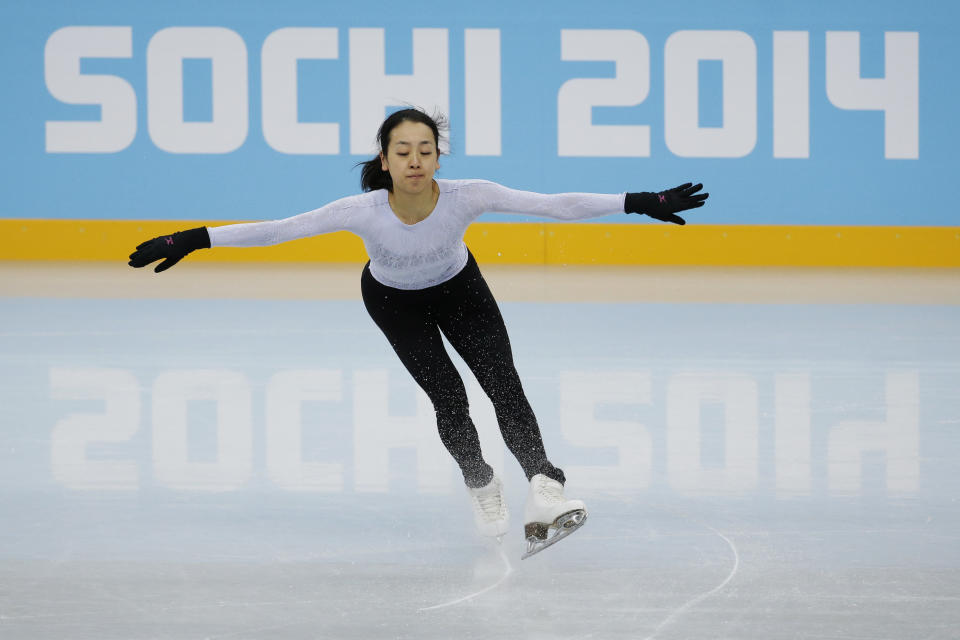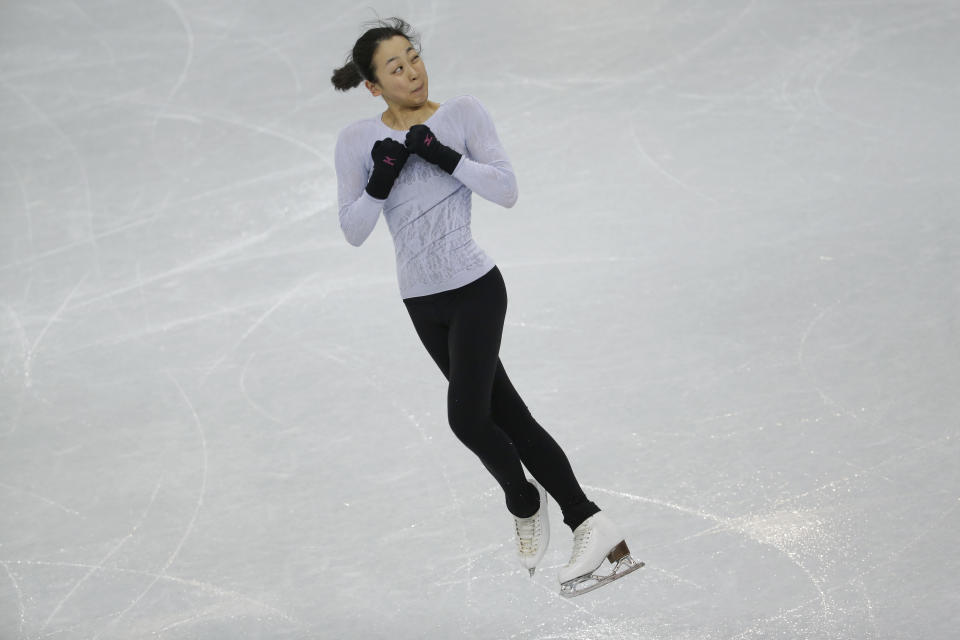5 things to watch for short program
SOCHI, Russia (AP) — Figure skating's biggest event, the Olympic women's competition, begins Wednesday night with the short program.
Here are five things to watch for from the Iceberg:
JULIA'S RETURN: After 15-year-old Julia Lipnitskaia enraptured her countrymen — and much of the rest of the sports world — with her performances in helping Russia win the team event, she disappeared from view. She returned to practice in Sochi on Tuesday and will share the spotlight with several other contenders in a too-close-to-call race for the gold.
Lipnitskaia has gone from the junior level to the top of the Olympic podium in one season, and she doesn't seem to recognize pressure, let alone be stressed out by it. A repeat of her two routines in the team competition could bring Russia its first Olympic women's title and a third gold medal in Sochi.
YUNA'S DEFENSE: No individual skater has repeated at the games since Katarina Witt in 1988. South Korea's Yuna Kim is in position to do it, but she's had an injury-interrupted season.
She has looked healthy during practices, though, and remains the most magical skater on the planet when she is on. Having won handily in Vancouver, then winning the world title last year after taking a season off shows how well Kim handles the tough situations.
No one in this field can match Kim's artistry. But unlike her top rivals, she has not competed in the Iceberg this month because her nation didn't qualify for the team competition.
MAO'S TRIPLE AXEL: The only woman who consistently tries — and lands — the 3½-revolution jump, Mao Asada of Japan holds something of a tiebreaker in her repertoire. The silver medalist at Vancouver is not defined by that jump or any of her jumps. She also is strong in presentation, and her free skate to "Adios Nonino" is both busy and, at times, breathtaking.
But Asada didn't skate well in the team short program, falling on the triple axel.
CAROLINA'S "BOLERO: When Torvill and Dean filled the Olympic scoreboard with perfect marks at Sarajevo, Ravel's "Bolero" became an iconic musical piece for the sport.
Italy's Carolina Kostner, who won the 2012 worlds and was second last year to Kim, is using it. Her run-throughs — often minus the jumps, which she practices separately — have been artistically impressive.
Her personal best scores have come with both of her current routines: "Ave Maria" in the short program, "Bolero" in the free skate.
AMERICAN WOMAN: Gracie Gold of Chicago was second to Lipnitskaia in the team long program, and the 18-year-old U.S. champion has improved steadily this season. Coached by Frank Carroll, who guided Michelle Kwan and Evan Lysacek to Olympic medals, her artistry and poise on the ice have increased along with her scores.
Two-time American champ Ashley Wagner of Alexandria, Va., has struggled this year, needing to be added to the team after finishing fourth at nationals. She's very driven, but has seemed fragile in the Olympic year.
At 15, Polina Edmunds of San Jose, Calif., is more of a future threat for the United States. Right now, she's no Lipnitskaia, but the potential is there.




